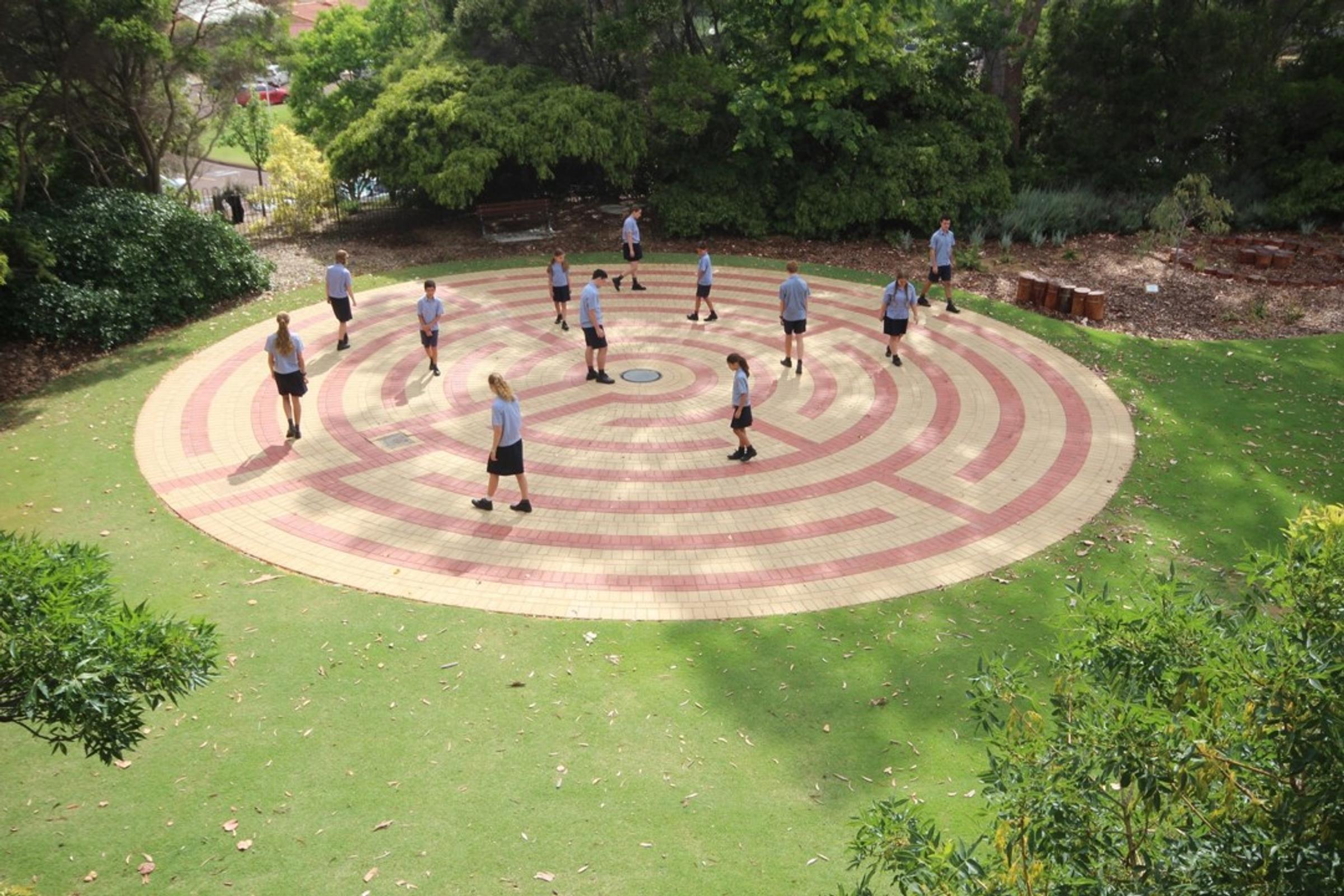Liturgy

Community Mass
Every Friday at 8:00am the members of the College community (staff, students, families, alumni and friends) gather to celebrate the Eucharist. It is a ‘user-friendly’ Mass: responses are on a PowerPoint, people are free to sit where they choose, and joyful music is led by students in Chapel Choir as well as other music groups in the College.
Each week a year group or House takes responsibility for proclaiming the readings and leading the prayer. Next week the Mass will be prepared by students in Year 10. Everyone is invited – and new parents are especially welcome, as are families of Year 10 students. Just come to the Chapel at 8:00am. Mass finishes at 8:30am, in time for the start of Homeroom.
Community Mass
- College Chapel
- Fridays in term time
- Starts: 8:00am and concludes 8:30am
SACRAMENT PROGRAM
Do you have a child in Years 3, 4 or 6?
Do you have a child currently in Year 3, 4 or 6? In their Religious Education classes, students will be preparing for the sacraments of Reconciliation, Eucharist and Confirmation. While the students will learn the appropriate content at school, they celebrate the sacraments with their family in their parishes.
Have you enrolled your child in a parish sacrament program?
Parents are encouraged to enrol their child, as soon as possible, in their parish – usually, but not necessarily, the parish closest to home. Most parishes are beginning their programs at this time, and it is essential to enrol your child in advance.
Have you enrolled?
Parents are encouraged to enrol their child, as soon as possible, in their parish – usually, but not necessarily, the parish closest to home. Most parishes are beginning their programs at this time, and it is essential
How to enrol
Contact the parish: the parish secretary, the sacrament coordinator or the parish priest. Parish contact details are available here. The College provides information from some of our local parishes. It is the parents’ right and responsibility to follow up with enrolling their child in the parish.
Please check below for the enrolment dates and procedures for some of our local parishes.
Saint Thomas Apostle, Claremont
First Communion Friday 21 May
Confirmation Friday 27 August
Reconciliation October
Please note that, due to current COVID restrictions on maximum capacity, priority for enrolment will go to families who are in the parish of Saint Thomas Apostle. Please see here.
Enrolment forms are available from silvia.kinder@iona.wa.edu.au
St Mary Star of the Sea, Cottesloe/Corpus Christi, Mosman Park
Reconciliation Saturday 27 March
First Holy Communion Sunday 1 August
Information Day: Thursday 29 April, 4-5pm, Parish Centre, 2 McNeil Street, Peppermint Grove.
Confirmation Sunday 7 November
Information Day: 5 August, 4-5pm Parish Centre, 2 McNeil Street, Peppermint Grove.
Enrolment information and contact details for the Sacrament Coordinator may be found here.
Holy Spirit, City Beach
Enrolment information and contact details for the Sacrament Coordinator may be found here.
St Mary’s, Leederville
Reconciliation Workshop:24 February; Commitment Mass: 27-28 February
Enrolment information may be found here.
Registration: Goretti – 94449624 smc_secretary@aapt.net.au
If you would like further information about the Sacrament Program:
- If your nearest parish is not listed, search the Archdiocesan website;
- Check the information available on the College website here
- Contact Mary-Anne Lumley mary-anne.lumley@cew.edu.au or by phone on (08) 9383 0408
GOOD NEWS for the season of Lent
The reflection for this Sunday’s Gospel is part of a longer homily by Jesuit priest, Fr Richard Leonard. Fr Richard Leonard SJ is the Director of the Australian Catholic Office for Film and Broadcasting, is a member of the Australian Catholic Media Council and is author of Preaching to the Converted, Paulist Press, New York, 2006.
Have you ever noticed that Jesus begins and ends his public ministry in the wilderness? These deserts are the geographical bookends of the greatest story ever told. In today’s Gospel we have Jesus in the desert for forty days. Much later, when condemned to death, Jesus is led out of the city and crucified at Golgotha, another dry and desolate location. In both places Jesus is tempted. In Mark we are never told what Satan’s temptations in the desert were about. Luke and Matthew fill in those details. On the cross, however, Mark tells us that the crowd tempts Jesus to work a miracle, come down from the cross and save himself. In the first desert Jesus is ministered to by the angels and emerges to proclaim that the kingdom of God is close at hand. In the later desert Jesus is ministered to by his women disciples and is put to death as a consequence for the way he lived out the Kingdom he proclaimed.
It’s clear from all the Gospels that the desert and the temptations stayed with Jesus throughout his life. What a comfort this is to us. Many of us do not need to go out and find a physical desert to know its claim on our lives. Temptations do not know geographical limitations. Indeed, the greater the number of options, the more temptations we have to take a destructive path.
When we look at how the desert is used in the Bible, mythology, art, literature and the cinema two competing images emerge. The first is that the desert can be a place of loss and ruin where some great heroes have gone and not returned. In another equally venerable tradition journeys to the desert, while filled with a mixture of pleasure and pain, are abundant with revelation, transformation and recreation.
These two descriptions do not have to be contradictory. As we find in Jesus’ example, we do not have to give in to the temptation that the desert is only about loss, but we need to find a path there to negotiate a way out of it so that we can emerge recreated, the richer for the experience.
It’s important to remember in our own particular deserts that temptation is not sin. To be tempted by something is not the same as doing it. Temptations are the allures that make destructive choices look good. In one sense, the bad news is that we know from the lives of the saints that the closer we get to God, the more temptations increase. The good news is that we can learn how to deal with them.
Usually, temptations have a context and a history. They can come when we are feeling most deserted and vulnerable and they normally strike us at the most susceptible points in our character. To deal with them we need to be aware of their pattern, the way they con us into believing that the destructive behaviour is ‘not that bad’, will be ‘just this once’, or ‘for the last time’. As well, it helps if we are aware of the danger signs in our lives that can weaken our defences. Tiredness, boredom, anger, alcohol and drug use, lack of good communication and a poor self-esteem are common realities that can leave us more exposed than usual.
This Lent, as we venture with Christ into our figurative deserts, let’s do anything that helps our self-esteem, deal with our anger, attend to why we might work or drink too much, and ensure that we are less stressed. Contrary to what we might think, these activities could be the most helpful ways we can make sure we emerge from our desert the better for having been there.
© Richard Leonard SJ


